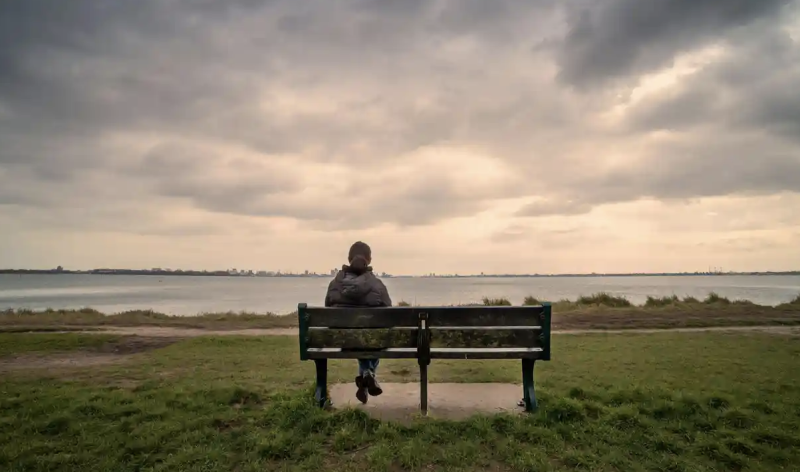Loneliness, researchers say, can seem timeless. It’s a universal experience. It first came into our consciousness in the late 16th century. This is because in early modern Britain, people began to move far from one another. Before this, straying too far from a community was a sign of surrendering protection.
Loneliness is described as the most neglected subject in emotion history. The usage of loneliness to mean a psychological state instead of a physical circumstance didn’t emerge until the 19th century. Feelings of loneliness are thought to stem from an innate human desire to belong in tribes.
Loneliness is a subject that is complex and is rooted deeply in social and historical context. Historically, social structures were more rigid than they are today. This means that, with social mobility becoming more fluid, it is also easier to become ostracised. This may contribute to what has been dubbed ‘The Modern Epidemic’.
It has been esimated that 45% of adults in England experience loneliness. This equals to around 25 million people. The most common issue is chronic, and this effects 2.6 million adults every year. Even though feeling alone is not noted as a mental health issue, they can both easily be connected.
It has been argued that those who suffer from mental health conditions are more likely to experience loneliness and vice-versa.
However, loneliness is unique to each person. It has both mental and physical damages to a persons health. Having severe loneliness can truly be debilitating.
Loneliness can be a symptom of other issues such as depression, introversion, and social isolation
Lonliness can be characterised as a feeling that people get when there is a lack of social contact. This is often known as an involuntary seperation. It must be remeber though, Loneliness is not the same as being alone.
“Being alone can actually have important mental health benefits such as better focus and the ability to re-energise.”
Although, people can also feel lonely while also being surrounded by people. Others can feel perfeclty content while being alone.
The causes of loneliness can vary from person to person. The causes are often linked to life events, the time of year, or a persons environment.

Life events that may contribute to feelings of loneliness:
- experiencing a bereavement
- going through a relationship break-up
- retiring and losing the social contact you had at work
- changing jobs and feeling isolated from your co-workers
- starting at university
- moving to a new area or country without family, friends or community networks
The eldery may feel lonliness particularly at Christmas. As there is an emphasis on family and social occasions during the festive period, those who are experiencing lonliness find these feelings are enhanced.
The circumstances that one lives in may cause feelings of loneliness, especially for those who:
- have no friends or family
- are estranged from their family
- are a single parent or care for someone else
- belong to minority groups and live in an area without others from a similar background
- are excluded from social activities due to mobility problems or a shortage of money
- experience discrimination and stigma because of a disability or long-term health problem, including mental health problems
- experience discrimination and stigma because of gender, race or sexual orientation
- have experienced sexual or physical abuse
Loneliness can affect anyone. Research suggests that it tends to affect people in a U-shaped distribution. This means that those aged under 25 and those over 65 are most likely to experience feelings of loneliness.
The demographic trends in the UK means that loneliness in over 50s is increasing. There are concerns it will go from 1.4 million in 2016/17 to 2 million by 2025/26; an increase of 46% in just under 10 years. Statistically, half a million older people go five or six days a week without seeing or speaking to anyone. Two fifths of all older people have admitted that television is their main company.
It is also argued that women can feel lonelier than man. According to the ONS, women were significantly more likely than men to report feeling lonely. The words they used to describe their feelings range from “often/always,” “some of the time” and “occasionally.” They were much less likely to say they have “never” felt lonely.
Loneliness has detrimental effects on both physical and mental health which include, but are not limited to:
- Alcohol and drug misuse
- Altered brain function
- Alzheimer’s disease progression
- Antisocial behaviour
- Cardiovascular disease and stroke
- Decreased memory and learning
- Depression and suicide
- Increased stress levels
- Poor decision-making
Loneliness for a person is also compared to smoking 15 cigarettes a day, and this increased a persons risk of death by 26%.
Furthermore, loneliness is linked with poor sleep quality, accelerated cognitive decline and poor cardiovascular function.
Loneliness in lockdown
The COVID-19 pandemic saw the country go into lockdown which limited the ability to congregate. During this time, loneliness in adults rose from a third to around half. The pandemic saw a greater increase in feelings of loneliness among people aged 18-30, especially students, compared to older people.
Young people appeared to have suffered the most with 16–24 year-olds being four times more likely to report ‘lockdown loneliness’ than those aged 65 or older. The younger generation reported feeling stress, anxiety and boredom.
However, the older generation were not immune to lockdown loneliness. They reported missing time with friends and family and feared that they would spend the last portion of their lives without them.
As the world shifted to remote working and zoom calls, those of the older generation who aren’t as tech savvy felt left behind and abandoned.
Help and guidance
If you or anyone you know have has been affected by the issues raised in this article, the channels below may be able to offer some assistance to alleviate the burden of loneliness and other emotions associated with mental health conditions.
Samaritans
The Samaritans offer emotional support 24 hours a day, in full confidence. Call 116 123 or email jo@samaritans.org.
Mind Infoline
Mind provides information on a range of mental health topics to support people in their own area from 9.00am to 6.00pm, Monday to Friday. Call 0300 123 3393 or email info@mind.org.uk.
Shout
Shout is a text-based service that offers 24/7 confidential support. Text SHOUT to 85258








